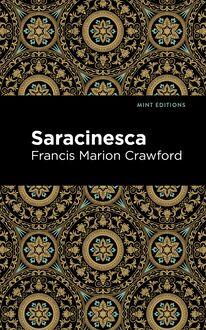-
 Univers
Univers
-
 Ebooks
Ebooks
-
 Livres audio
Livres audio
-
 Presse
Presse
-
 Podcasts
Podcasts
-
 BD
BD
-
 Documents
Documents
-
- Cours
- Révisions
- Ressources pédagogiques
- Sciences de l’éducation
- Manuels scolaires
- Langues
- Travaux de classe
- Annales de BEP
- Etudes supérieures
- Maternelle et primaire
- Fiches de lecture
- Orientation scolaire
- Méthodologie
- Corrigés de devoir
- Annales d’examens et concours
- Annales du bac
- Annales du brevet
- Rapports de stage
La lecture à portée de main
Vous pourrez modifier la taille du texte de cet ouvrage
Découvre YouScribe en t'inscrivant gratuitement
Je m'inscrisDécouvre YouScribe en t'inscrivant gratuitement
Je m'inscrisEn savoir plus
Vous pourrez modifier la taille du texte de cet ouvrage
En savoir plus

Description
Ragged Dick (1868) is the first in a series of six novels by American author Horatio Alger. In each, Alger uses the Protestant work ethic as a template to not only examine the harsh realities of urban poverty, but provide a hopeful, concrete moral for his young readers.
Dick is a teenage bootblack who lives and works on the streets of New York City. Despite his difficult circumstances, he never loses hope. Dick is determined to both survive and make it in life, and prides himself on his moral standards, refusing to lie, cheat, or steal to get ahead. When he is recognized for his honesty by local church figures and businessmen, they provide him opportunities to work. With the money he manages to save, Dick opens a bank account and begins to rent a modest apartment in the city. As he moves closer and closer to middle class life, Dick takes every chance he is offered and, most importantly, remains hopeful that his hard work and moral vision will not only pay off, but keep him grounded, respected, and alive. Horatio Alger’s Ragged Dick is a simple Bildungsroman with a valuable message that remains a classic work of young adult fiction to this day.
Although Alger’s work was intended for young boys of an entirely different era, many of his themes ring true for our own. In a time of economic crisis and instability, hopeful stories of perseverance and hard work could be a welcome form of entertainment and education. Additionally, Alger’s novel provides a window onto America’s past, toward the very origin of the middle-class promise sought and attained by millions. The Protestant work ethic and the American Dream have been the nation’s defining myths for well over a century, and while there is ample room to criticize their motives and attainability, it is undeniable that they have shaped America’s history and people into what they are today.
With a beautifully designed cover and professionally typeset manuscript, this edition of Horatio Alger’s Ragged Dick is a classic of young adult fiction and American literature reimagined for modern readers.
Sujets
Informations
| Publié par | Mint Editions |
| Date de parution | 01 décembre 2020 |
| Nombre de lectures | 0 |
| EAN13 | 9781513272818 |
| Langue | English |
| Poids de l'ouvrage | 1 Mo |
Informations légales : prix de location à la page 0,0450€. Cette information est donnée uniquement à titre indicatif conformément à la législation en vigueur.
Extrait
Ragged Dick
Or, Street Life in New York with the Boot-Blacks
Horatio Alger
Ragged Dick was first published in 1868.
This edition published by Mint Editions 2020.
ISBN 9781513267814 | E-ISBN 9781513272818
Published by Mint Editions®
minteditionbooks.com
Publishing Director: Jennifer Newens
Design & Production: Rachel Lopez Metzger
Typesetting: Westchester Publishing Services
C ONTENTS P REFACE I. R AGGED D ICK IS I NTRODUCED TO THE R EADER II. J OHNNY N OLAN III. D ICK M AKES A P ROPOSITION IV. D ICK ’ S N EW S UIT V. C HATHAM S TREET AND B ROADWAY VI. U P B ROADWAY TO M ADISON S QUARE VII. T HE P OCKET -B OOK VIII. D ICK ’ S E ARLY H ISTORY IX. A S CENE IN A T HIRD A VENUE C AR X. I NTRODUCES A V ICTIM OF M ISPLACED C ONFIDENCE XI. D ICK AS A D ETECTIVE XII. D ICK H IRES A R OOM ON M OTT S TREET XIII. M ICKY M AGUIRE XIV. A B ATTLE AND A V ICTORY XV. D ICK S ECURES A T UTOR XVI. T HE F IRST L ESSON XVII. D ICK ’ S F IRST A PPEARANCE IN S OCIETY XVIII. M ICKY M AGUIRE ’ S S ECOND D EFEAT XIX. F OSDICK C HANGES HIS B USINESS XX. N INE M ONTHS L ATER XXI. D ICK L OSES HIS B ANK -B OOK XXII. T RACKING THE T HIEF XXIII. T RAVIS IS A RRESTED XXIV. D ICK R ECEIVES A L ETTER XXV. D ICK W RITES HIS F IRST L ETTER XXVI. A N E XCITING A DVENTURE XXVII. C ONCLUSION
P REFACE
R agged Dick” was contributed as a serial story to the pages of the Schoolmate, a well-known juvenile magazine, during the year 1867. While in course of publication, it was received with so many evidences of favor that it has been rewritten and considerably enlarged, and is now presented to the public as the first volume of a series intended to illustrate the life and experiences of the friendless and vagrant children who are now numbered by thousands in New York and other cities.
Several characters in the story are sketched from life. The necessary information has been gathered mainly from personal observation and conversations with the boys themselves. The author is indebted also to the excellent Superintendent of the Newsboys’ Lodging House, in Fulton Street, for some facts of which he has been able to make use. Some anachronisms may be noted. Wherever they occur, they have been admitted, as aiding in the development of the story, and will probably be considered as of little importance in an unpretending volume, which does not aspire to strict historical accuracy.
The author hopes that, while the volumes in this series may prove interesting stories, they may also have the effect of enlisting the sympathies of his readers in behalf of the unfortunate children whose life is described, and of leading them to co-operate with the praiseworthy efforts now making by the Children’s Aid Society and other organizations to ameliorate their condition.
New York, April, 1868
I
R AGGED D ICK IS I NTRODUCED TO THE R EADER
“ W ake up there, youngster,” said a rough voice.
Ragged Dick opened his eyes slowly, and stared stupidly in the face of the speaker, but did not offer to get up.
“Wake up, you young vagabond!” said the man a little impatiently; “I suppose you’d lay there all day, if I hadn’t called you.”
“What time is it?” asked Dick.
“Seven o’clock.”
“Seven o’clock! I oughter’ve been up an hour ago. I know what ’twas made me so precious sleepy. I went to the Old Bowery last night, and didn’t turn in till past twelve.”
“You went to the Old Bowery? Where’d you get your money?” asked the man, who was a porter in the employ of a firm doing business on Spruce Street. “Made it by shines, in course. My guardian don’t allow me no money for theatres, so I have to earn it.”
“Some boys get it easier than that,” said the porter significantly.
“You don’t catch me stealin’, if that’s what you mean,” said Dick.
“Don’t you ever steal, then?”
“No, and I wouldn’t. Lots of boys does it, but I wouldn’t.”
“Well, I’m glad to hear you say that. I believe there’s some good in you, Dick, after all.”
“Oh, I’m a rough customer!” said Dick. “But I wouldn’t steal. It’s mean.”
“I’m glad you think so, Dick,” and the rough voice sounded gentler than at first. “Have you got any money to buy your breakfast?”
“No, but I’ll soon get some.”
While this conversation had been going on, Dick had got up. His bedchamber had been a wooden box half full of straw, on which the young boot-black had reposed his weary limbs, and slept as soundly as if it had been a bed of down. He dumped down into the straw without taking the trouble of undressing.
Getting up too was an equally short process. He jumped out of the box, shook himself, picked out one or two straws that had found their way into rents in his clothes, and, drawing a well-worn cap over his uncombed locks, he was all ready for the business of the day.
Dick’s appearance as he stood beside the box was rather peculiar. His pants were torn in several places, and had apparently belonged in the first instance to a boy two sizes larger than himself. He wore a vest, all the buttons of which were gone except two, out of which peeped a shirt which looked as if it had been worn a month. To complete his costume he wore a coat too long for him, dating back, if one might judge from its general appearance, to a remote antiquity.
Washing the face and hands is usually considered proper in commencing the day, but Dick was above such refinement. He had no particular dislike to dirt, and did not think it necessary to remove several dark streaks on his face and hands. But in spite of his dirt and rags there was something about Dick that was attractive. It was easy to see that if he had been clean and well dressed he would have been decidedly good-looking. Some of his companions were sly, and their faces inspired distrust; but Dick had a frank, straight-forward manner that made him a favorite.
Dick’s business hours had commenced. He had no office to open. His little blacking-box was ready for use, and he looked sharply in the faces of all who passed, addressing each with, “Shine yer boots, sir?”
“How much?” asked a gentleman on his way to his office.
“Ten cents,” said Dick, dropping his box, and sinking upon his knees on the sidewalk, flourishing his brush with the air of one skilled in his profession.
“Ten cents! Isn’t that a little steep?”
“Well, you know ’taint all clear profit,” said Dick, who had already set to work. “There’s the blacking costs something, and I have to get a new brush pretty often.”
“And you have a large rent too,” said the gentleman quizzically, with a glance at a large hole in Dick’s coat.
“Yes, sir,” said Dick, always ready to joke; “I have to pay such a big rent for my manshun up on Fifth Avenoo, that I can’t afford to take less than ten cents a shine. I’ll give you a bully shine, sir.”
“Be quick about it, for I am in a hurry. So your house is on Fifth Avenue, is it?”
“It isn’t anywhere else,” said Dick, and Dick spoke the truth there.
“What tailor do you patronize?” asked the gentleman, surveying Dick’s attire.
“Would you like to go to the same one?” asked Dick, shrewdly.
“Well, no; it strikes me that he didn’t give you a very good fit.”
“This coat once belonged to General Washington,” said Dick, comically. “He wore it all through the Revolution, and it got torn some, ’cause he fit so hard. When he died he told his widder to give it to some smart young feller that hadn’t got none of his own; so she gave it to me. But if you’d like it, sir, to remember General Washington by, I’ll let you have it reasonable.”
“Thank you, but I wouldn’t want to deprive you of it. And did your pants come from General Washington too?”
“No, they was a gift from Lewis Napoleon. Lewis had outgrown ’em and sent ’em to me,—he’s bigger than me, and that’s why they don’t fit.”
“It seems you have distinguished friends. Now, my lad, I suppose you would like your money.”
“I shouldn’t have any objection,” said Dick.
“I believe,” said the gentleman, examining his pocket-book, “I haven’t got anything short of twenty-five cents. Have you got any change?”
“Not a cent,” said Dick. “All my money’s invested in the Erie Railroad.”
“That’s unfortunate.”
“Shall I get the money changed, sir?”
“I can’t wait; I’ve got to meet an appointment immediately. I’ll hand you twenty-five cents, and you can leave the change at my office any time during the day.”
“All right, sir. Where is it?”
“No. 125 Fulton Street. Shall you remember?”
“Yes, sir. What name?”
“Greyson,—office on second floor.”
“All right, sir; I’ll bring it.”
“I wonder whether the little scamp will prove honest,” said Mr. Greyson to himself, as he walked away. “If he does, I’ll give him my custom regularly. If he don’t as is most likely, I shan’t mind the loss of fifteen cents.”
Mr. Greyson didn’t understand Dick. Our ragged hero wasn’t a model boy in all respects. I am afraid he swore sometimes, and now and then he played tricks upon unsophisticated boys from the country, or gave a wrong direction to honest old gentlemen unused to the city. A clergyman in search of the Cooper Institute he once directed to the Tombs Prison, and, following him unobserved, was highly delighted when the unsuspicious stranger walked up the front steps of the great stone building on Centre Street, and tried to obtain admission.
“I guess he wouldn’t want to stay long if he did get in,” thought Ragged Dick, hitching up his pants. “Leastways I shouldn’t. They’re so precious glad to see you that they won’t let you go, but board you gratooitous, and never send in no bills.”
Another of Dick’s faults was his extravagance. Being always wide-awake and ready for business, he earned enough to have supported him comfortably and respectably. There were not a few young clerks who employed Dick from time to time in his professional capacity, who scarcely earned as much as he, greatly as their style and dress exceeded his. But Dick was careless of his earnings. Where they went he could hardly have told himself. However much he managed to earn during the day, all was generally sp
-
 Univers
Univers
-
 Ebooks
Ebooks
-
 Livres audio
Livres audio
-
 Presse
Presse
-
 Podcasts
Podcasts
-
 BD
BD
-
 Documents
Documents
-
Jeunesse
-
Littérature
-
Ressources professionnelles
-
Santé et bien-être
-
Savoirs
-
Education
-
Loisirs et hobbies
-
Art, musique et cinéma
-
Actualité et débat de société
-
Jeunesse
-
Littérature
-
Ressources professionnelles
-
Santé et bien-être
-
Savoirs
-
Education
-
Loisirs et hobbies
-
Art, musique et cinéma
-
Actualité et débat de société
-
Actualités
-
Lifestyle
-
Presse jeunesse
-
Presse professionnelle
-
Pratique
-
Presse sportive
-
Presse internationale
-
Culture & Médias
-
Action et Aventures
-
Science-fiction et Fantasy
-
Société
-
Jeunesse
-
Littérature
-
Ressources professionnelles
-
Santé et bien-être
-
Savoirs
-
Education
-
Loisirs et hobbies
-
Art, musique et cinéma
-
Actualité et débat de société
- Cours
- Révisions
- Ressources pédagogiques
- Sciences de l’éducation
- Manuels scolaires
- Langues
- Travaux de classe
- Annales de BEP
- Etudes supérieures
- Maternelle et primaire
- Fiches de lecture
- Orientation scolaire
- Méthodologie
- Corrigés de devoir
- Annales d’examens et concours
- Annales du bac
- Annales du brevet
- Rapports de stage




















